Independent/3rd Party '28? Everyone Weighs In.
An intra-left discussion on the strengths and weaknesses of a potential independent/3rd party run for President
Is it a fantasy? Is it naive? Is it good in theory but risky in practice? It’s time to look beyond the DNC and ask: Independent/3rd Party 2028?
says:
I'll paint you a picture: Existing party politicians have horrible approval, earned by decades of bad governance. The balance tips here and there, but except for the odd scandal, nothing seems to change. They're ancient, they're out of touch, and worst of all when things go wrong they blame you for not voting for them hard enough. The moment seems ripe for an independent party to come in and give every single one of them an ass whoopin’ at the polls on the way to real change.
Then it happens. Someone comes along that somehow unites people across previous political lines. They're youthful, but a good enough speaker to persuade even those who typically only trust experienced candidates. Maybe they have experience but aren't too tied to the unpopular parts of their administration. It'll all be for nothing though. The far right and center right parties will inevitably dominate the election.
Then another miracle. It would've never worked against the far right candidate, but the other gets embroiled in a political scandal that forces the nominee to drop out of the race. Our guy seizes his moment, obliterating the far right candidate with 66% of the vote. He takes office with an astonishing legislative majority, the youngest president in the country’s history. His name is Emmanuel Macron.
I believe the outsider path is viable in America, especially after we've proved it possible to bully an incumbent president off the ballot. The question becomes: Even if they run against the two parties… would they just be more of the same?
says:
In terms of general left-electoralism, there absolutely needs to be some sort of political force outside the Democratic party that can run for office, if only because Dem donors and power brokers are always moving the party to the right on different fronts. Having an independent left wing entity is the only way to achieve a left wing government.
A third party run in most elections at any level around the country feels like it'll be primed for failure if it tries to enter as some brand new force in politics. In terms of the presidency, under current conditions there's absolutely zero chance an independent or third party run will ever come close to winning.
There should instead be more effort invested in leftwing candidates running downballot as independents, under some sort of visible "working class" or left anti-establishment platform, in solidly red regions of the country. This could be a way to build an independent left wing entity in politics that then turns into a viable third party with enough electoral wins.
says:
Arguments for a third party:
Democrats are currently extremely unpopular.
The party has shown itself to be feckless and useless in the face of mortal danger.
Running as an independent can win in red states that hate Democrats simply for the label "Democrat" (see Nebraska Senate candidate Dan Osborn).
The GOP is likely to be extremely weak in 2028 following four years of Trump's failure and economic turmoil, creating an opening to push further left.
Certain candidates (AOC? may be possibly viable as third party or independent contenders.
Third party candidate on the left may serve to whip the Democrats towards the left to win back third party voters.
Arguments against a third party:
Mostly nonexistent current infrastructure.
Both major parties are extraordinarily weak, so mounting an internal hostile takeover isn't as hard as it seems. Just ask Trump or Bernie, who himself got pretty damn close twice.
The spoiler effect.
Running as not-a-Dem may go poorly in crucial blue states.
A third party candidate on the left may serve to drive elected Democrats towards the right as they believe their left flank is lost to the third party.
A non-Dem president would necessarily be stuck governing with either a Dem or GOP Congress; the latter noncompliant and the former usable but resistant.
An independent wouldn't be a mass movement candidate but a personalist candidate, more Trump than Bernie, so they wouldn't really be accountable.
Dem popularity increasing as Trump's failures mount.
In conclusion, a third party presidency is pointless right now. But the left should run independents in every single deep red state to try and dislodge the Democrats where they're weakest (Southern, Mountain West and Great Plains). Independents should run in specific blue states where a tactical challenge can serve to threaten the left flank and either force Democratic compromise, or win outright with lower risk of GOP win (Illinois, Vermont, California, maybe New York).
You need to build a third party before a third party can run. Eugene Debs ran and got 6% because his third party had things like congressional seats and mayorships; they had experience in winning and governing.
says:
I'm fully in favor of lying and saying you're gonna vote third party in order to get concessions from the Democrats, but the Republican Party is so demonic that I don't think I could personally stand voting any way but strategically against them. like, I'm a teacher, and many of my students are some combination of neurodivergent, nonbinary, and/or undocumented. Trump winning really terrified them—if I voted third party and a Republican won, I would feel horrifically guilty even if I know that one vote wouldn't have changed things either way.
says:
Independent runs can be done (and should) be done at every single other level of elected office, but it just won't happen at the presidential level in my opinion. Senate runs are prime for Independents if they can figure out tactical Dem no-noms.
says:
I live in Massachusetts, so I don’t really give a fuck, an I enjoy the privilege of being picky about which national candidates I support. I voted for Biden in 2020, and at this point I regret it. I did not vote for Kamala in 2024.
In a general sense I’m pessimistic about the prospects of any third party campaign, the way our voting system is structured favors two major parties, and for the time being that’s just the way it is. I wouldn’t put a dollar on anybody in my lifetime winning the presidency who doesn’t secure the Democratic or the Republican nomination. If someone in a swing state appraises these facts as I have, I think a harm reduction vote is hard to criticize.
That said, I don’t have it in me to really harshly disagree with anyone who has made Gaza a red line. If someone won’t vote for a politician who opts to continue facilitating a genocide, well, good for them. I won’t vote for it either. I can say I won’t do it because I’m in Massachusetts and my vote doesn’t matter. But that’s cowardly. I won’t do it because I can’t do it. The thought of it sickens me. I don’t know if it’s wrong or if it’s right, but I know this much is true: I do not have it in me to suck it up and vote for someone who backs genocide.
Strategically, a third party candidate will not win in 2028. I’d bet you a million dollars. The best thing they can do is try and attract support strong enough to threaten the Democrats into running on some less ghoulish positions. If there’s a campaign that tries that, god bless them. I’ll probably vote for them. But I’m under no illusions they’ll win outright.
says:
asked me this open-ended question, probably hoping for a “yes, and Bernie or AOC should run” or “no way; Democrats unite.” I’m sorry, Evan. I’m annoyingly long winded when it comes to things like this. Here is my full response. But to sum it up?
Ideally: We’d have many political parties that pop into and out of existence as needed like so many other countries have, and a coalition of different parties would have political power at any given time. This would be…representative democracy.
Realistically: Half of the United States will always vote Republican because of their own identity politics of white, male, Christian power. Therefore, we must have a countervailing party that agrees to disagree for the sake of keeping evil from winning. This is, de facto, the Democratic party, which is actually a coalition of groups and not a galvanized, coherent party like the Republican party, which is coherent because everyone within it agrees in white male supremacy and hatred of “the other.”
Alternatively: We choose to lose to evil.
says:
There will be no viable third party path in 2028. It took six years for the Republican party to displace the Whig party in a four-way presidential race in 1860, and that was only made possible because of the increasing regional polarization around the single issue of slavery. There is no other singular issue around which this country is polarized that one new party could ride to a White House win in just 4 years. It would be an incredibly steep climb, even if you could get on 270 electoral votes worth of states ballots, and to force a contingent election is equally hard.
For one, without an existing party infrastructure, this third party would be extremely outspent by the Democratic and Republican parties. The only way to really get around that is to have an extremely wealthy backer, a la Ross Perot with himself in the 90s or RFK, Jr. with his Trump-aligned donors and ultimately wealthy VP pick last year. Even with all that, Perot only managed to get under 20% and still not win a single state.
And if it’s a wealthy candidate or just one with a rich backer, you can probably say goodbye to them being a candidate you want to win. They will almost certainly be amenable to capital, a centrist, or just carry a much more mixed record on a number of issues than your average Democrat. The only way we are going to see a successful third party candidate for president right now—who is actually good—is if they get elected on a party line, and leave once taking office and run again as an incumbent.
says:
We as leftists are in a tough position when it comes to discussing third party or independents running for president. Bernie Sanders, a lifetime Independent, had to run as a Democrat in 2016 and 2020 to even have a shot at winning the nomination, let alone the presidency.
The two party system does not work when it comes to addressing the needs and concerns of the average American citizen, and in a perfect world we wouldn't have this system, and the Democratic and Republican parties would not exist as they do today. But they do, and the deck is heavily stacked against third party candidates; even someone like RFK, Jr.—who had fairly significant support when the nominees were Trump and Biden—wasn't even allowed at the debate when Biden self-immolated on stage. So that means I should be advocating in favor of third parties running in 2028, right?
Well, I'm not saying they shouldn't run. However, you're gonna have a hard time convincing me to vote for Jill Stein in 2028 after she disappears from the public for the past three years. And if there's anyone like RFK, Jr. (whose running mate admitted on a podcast that their main goal was to siphon votes from Biden, then threw their support behind Donald Trump), you're also not going to convince many people like me.
That's what pissed me off about third parties the last time. They had a perfect opportunity to rally people away from the geriatric old farts that nobody genuinely liked, to push for electoral reform and to carve a new way forward, but they wasted it by being petty opportunists and grifters. It's very hard to advocate for third party representation when they have neither the resources nor the willpower to run genuine campaigns in state and local governments.
What's the solution? I don't know, but if those who support third party candidates really want to push that envelope, they need to do more than sit on the sidelines and complain about everything and then pop up every four years to tell everyone that everything sucks and their vote doesn't matter, and then expect people to tag along to a nihilistic worldview. I would love to say I fully support third party candidates in 2028, but first, I need to be convinced that they're serious business, and not just a way for people to feel "morally superior" for not picking the "lesser of two evils".
says:
I think we should put the notion of a third-party candidate to bed, frankly. The U.S. electoral system makes it extremely difficult for a third party to win. Not only that, but the kind of third party we on the left want to see would probably end up dividing the non-GOP vote and handing the election to Republicans.
But let us assume for the moment that the Democrats get their act together and nominate a good candidate—and I'm fairly optimistic that they will, given the righteous outrage swelling within the party at the do-nothing Dem establishment. Even then, winning the election (while critical) is only a first step. The reason is that the Republican incumbent, whether Trump or anyone else, is not going to accept an electoral defeat. The only thing that can force them to leave office is nationwide, nonviolent civil resistance.
We are now living under an authoritarian regime. This means that we must stop thinking exclusively in terms of elections as the path to gaining power. In the years ahead, the median protester will matter far more than the median voter. The sooner the Democrats as well as the rest of us accept this fact, the better-equipped we will be to rid ourselves of these fuckers come 2029.
says:
I agree with the commenters quoted here that emphasize collective protest—particularly a general strike—is more important than anything we do.
I fully expect federal elections, if we have them, to be manipulated. Barring a hand-counted paper ballot nationwide (hardly feasible at this moment), our elections will be tampered with. Is that dispiriting? Yes. On the flip side, however, this fascist overreach belies their weakness: they are not popular. In the days ahead, I encourage you to take the small but significant step of holding a pro-democracy block party. Meet your neighbors. Pool resources. Give comfort.
Fascists are cruel. They know that empathy and collaboration are powerful and hardwired impulses in humanity, writ large. What we have here is a small group of wealthy individuals who have become evil—by which I mean they have come to see other people, other nations, and entire ecosystems as furniture devoid of agency, hopes, dreams, and loving kindness. That’s what evil is: being so far removed from everyday life that one begins to see people as things.
I do think senior Democratic leadership (read: lifelong career politicians living on the dole) have continually let us down and are flirting with their own moral bankruptcy. The sad part is that, had they been listening to their base instead of chasing big donors, we wouldn’t be in the awful position we are in now. The comfortable rich have let us down and refused to fight for us, sacrificing their base’s needs for bipartisanship that lead to precisely where we are now.
Which is to say: why the hell are we focusing on a POTUS election at all when we may be a one-party state by summertime? Again, this isn’t to discourage you. We have an incredible amount of power, and leading questions like these distract us from the very local and direct action engagements we ought to be having.
says:
I guess I'm the practical progressive, the progressive who suggests practical stuff. As a bit of background, I've worked for insurgent Democrats, Greens, and DSA candidates; I even ran the electoral program for an independent political organization. I share all that to say I have a lot of respect for independent political organizations. But with that said, I know how often those strategies have failed; for example the New Party, a post-Jesse Jackson/Rainbow Coalition formation that was the early 90s predecessor to the Working Families Party, and the Labor Party in the mid-90s which several left-leaning unions got behind that never even got candidates on the ballot anywhere.
One thing I always ask people about building electoral power, especially independent political power, is “who do you believe will do the work of your organization?” Have you identified those types of folks? Think about the people who make up the "ground game" and volunteer base of the Democrats or even the Republicans—go into a campaign office and see who the volunteers are.
I sometimes find some lefties perplexed by this question because they seem to think this work happens without intentional capacity building. But real people do this work, and it feels like no one considers that to build your own formation, you will need to either 1) recruit your own folks to do this work or 2) convince the types of people who do this work for the Democrats to divert their attention to your new organization, but to do either you have to have a plan for electoral progress, and I think that's a massive impediment to building independent political power.
Additionally, too often there is an anti-electoral element within independent political power building—for my DSA friends, think about the folks on your election committee—but also think about who is critical of electoral work and what they often suggest instead, probably something like this:
The dude in your Brooklyn DSA chapter who talks a lot about theory but never replies to your text to do doors for Zohran, which is probably the biggest opportunity to build real power for a segment of New York City’s left in ages. How will we build a movement if people can't accept that practical and tangible activities are necessary to create genuine power with which the median voter (or even non-voter) can engage?
Lastly, folks were impressed by Dan Osborn's run in Nebraska, but give this a bit of thought: Did he do well because he ran as an Independent or because he ran on a relatively progressive platform? If you believe that the Democrats should run better candidates, I think it's probably better to have Democrats run as Dan Osborn-style folks; otherwise, you are sort of giving moderate Democrats an out from being better.
says:
It is outright impossible for any serious third party candidate. It’s best for any group to look towards state elections or going for a hung congress, by which I mean forcing the Dems into a minority government. Any third party goal in congress should for a start focus on denying the Dems a majority in the house so as to make electing a Speaker impossible without their support. This would force Democrats into negotiation where demands can be made.
In this scenario you can break the obsession with seniority among elites, force committees to be more friendly to a left wing agenda, make tangible demands on what legislation will go to a vote, and demand much greater transparency on how and why decision are being made. The left flank within leadership would also be empowered since the Congressional Progressive Caucus can serve as a legit independent caucus, rather than just group for Democrats fearing a primary to virtue signal.
says:
We need a reverse RFK, Jr.: Someone far outside the political mainstream who can activate new voters, lapsed voters, and other Americans across the spectrum who have lost faith and trust in both Democrats and Republicans. Reverse RFK, Jr.—we’ll call him Dark RFK, Jr.—can bring people into the fold and ultimately throw their support to the eventual Democratic nominee. Dark RFK, Jr. will be handsomely rewarded with a cabinet position and a commitment to universal healthcare, but why stop there?
If they play their cards right, this independent kingmaker can help elect candidates downballot and strengthen Democratic power in coalition with a small but decisive new third party movement. In states across the county, a few local victories can tilt the balance of legislative control. Strategic primary challenges can oust complicit corporate Dems—and put the fear of God in those who don’t face a challenge yet.
It could be Mark Cuban, Oprah, Jon Stewart or even Bernie himself. Whoever leads this movement and prepares to throw all their cumulative support behind the DNC-endorsed candidate, I’m all for it. Who will be the Dark RFK, Jr. that Gotham needs?
ICYMI, check out these related posts:
Bernie 2028? Everyone Weighs In
Coming up second in 2016 and 2020, Sanders remains the most popular Democrat never nominated for President. As he raises millions mobilizing against oligarchy, we ask: Bernie 2028?
Walz 2028? Everyone Weighs In.
Minnesota Governor Tim Walz has generated considerable attention recently, sparking discussion about a potential Presidential candidacy in 2028.
AOC 2028? Everyone Weighs In.
Who is more exciting than AOC? Although she has not announced for President in 2028, speculation abounds.









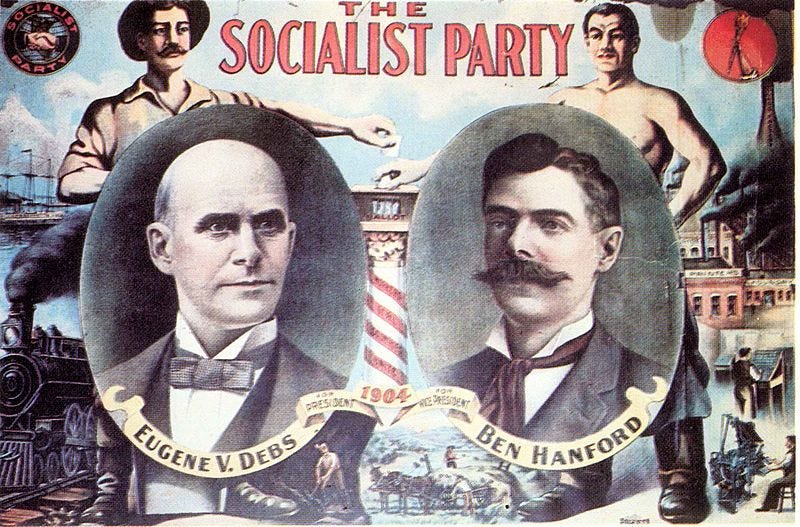
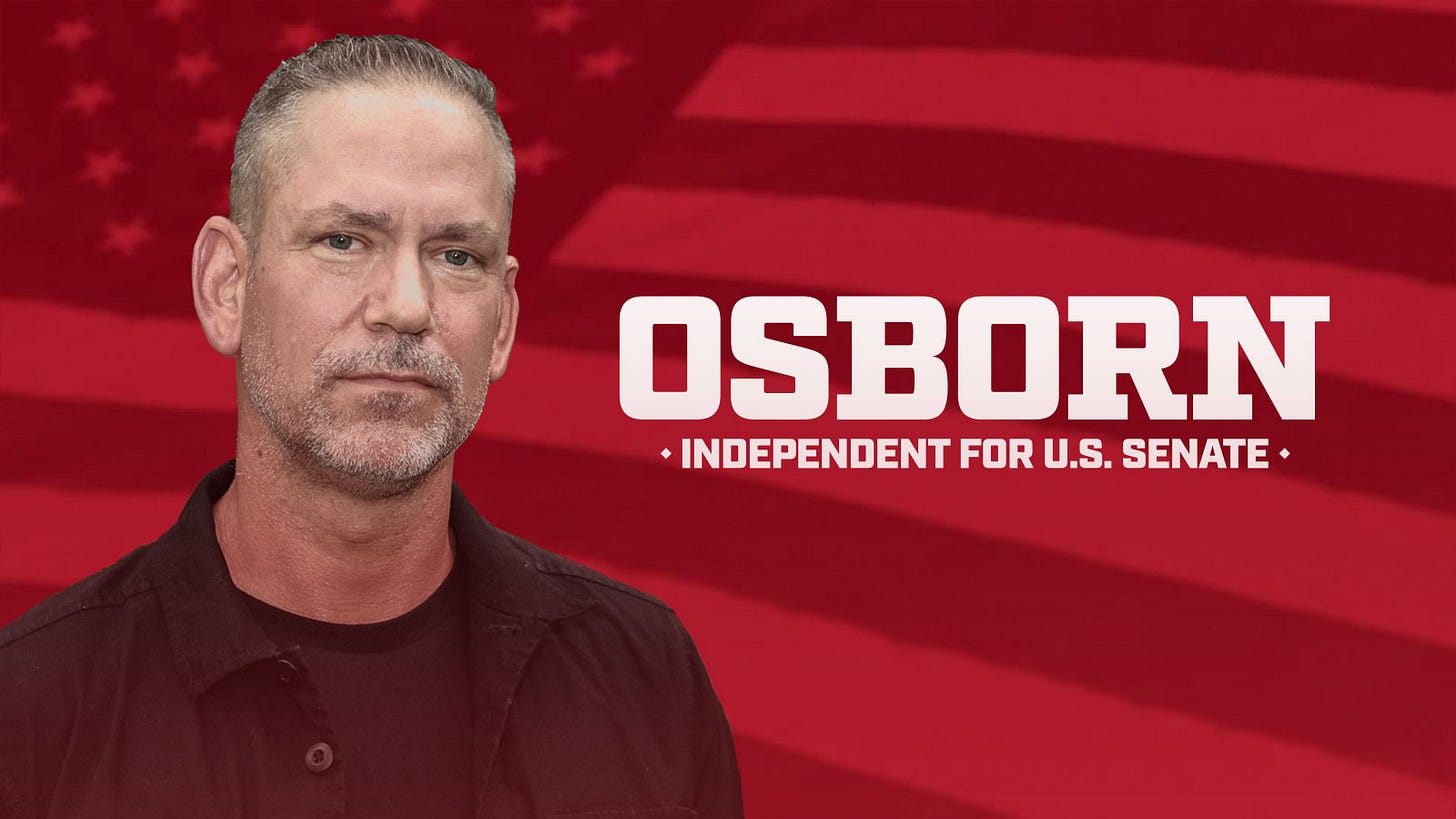
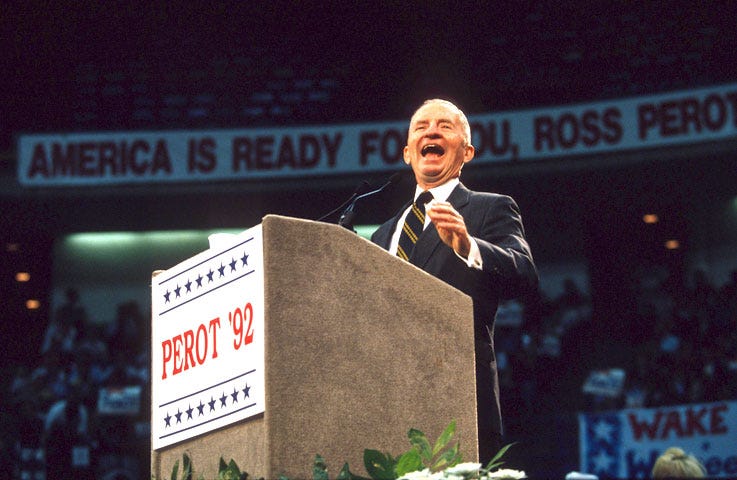
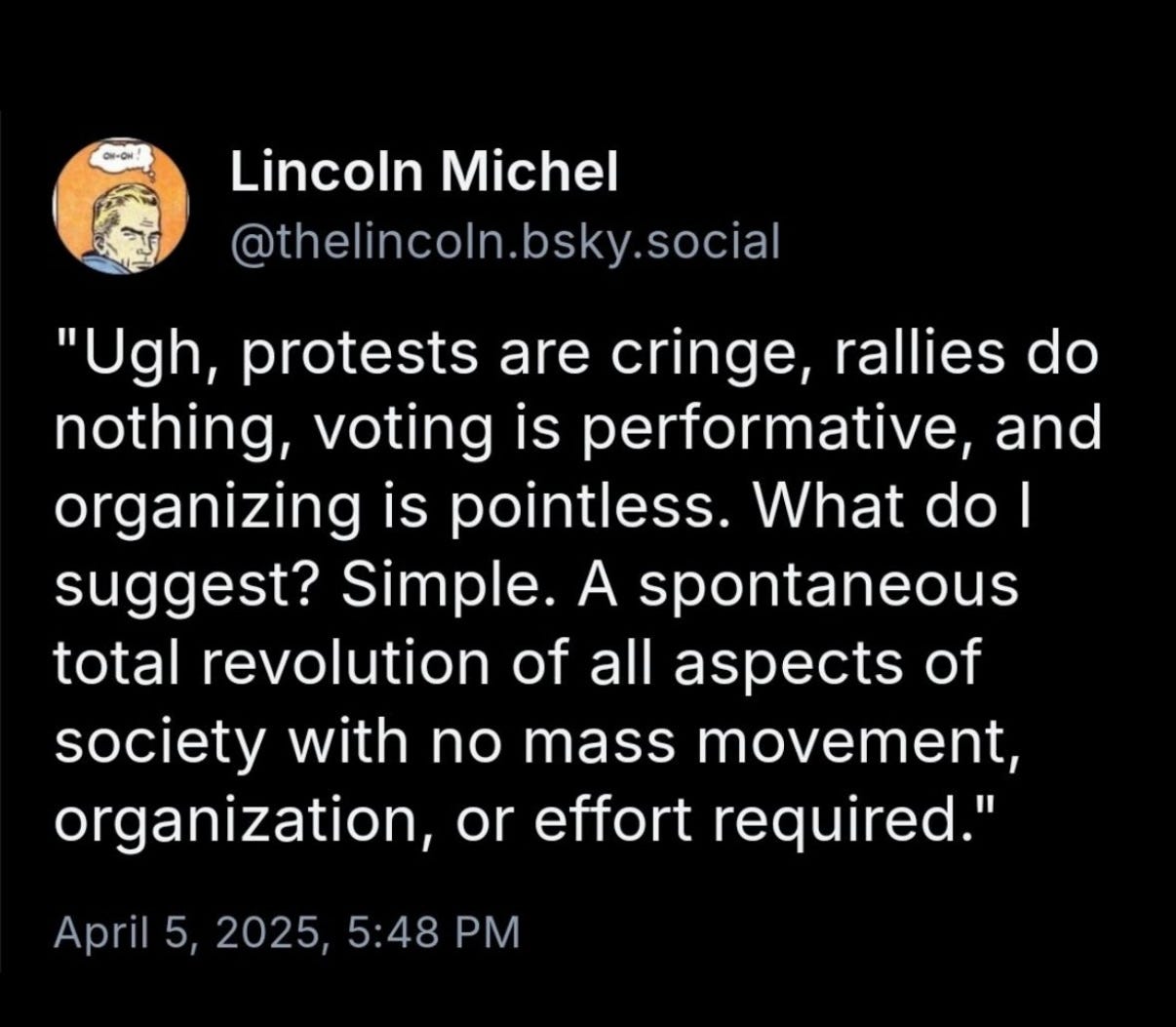





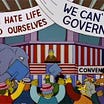









The end run around this endless debate is that we need a TEAM OF RIVALS. We should embrace a wide range of third party/independents for state level and House positions, with a pact to primary together for Senate and the Presidency. And I'm not just talking centrist/progressive either. There should be a third party that's a raft for current elected Republicans with a shred of conscience to jump onto. Our goal shouldn't be to scrape by 2026 or 2028, it should be to have an absolute tsunami from all sides that suffocates MAGA.
Splitting the vote is how we got here. More people voted against Trump than for Trump. If all third-party votes last November went to Harris, she would have won.
The congressional midterms only get ~20% attendance. Congressional primaries see even less turnout. I’m all for new blood in the seats, but we need to do that through primaries.